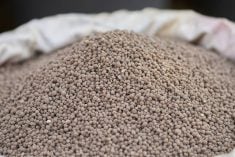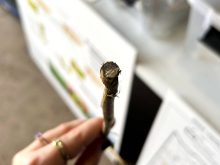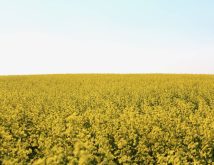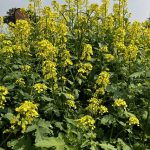Some of those yellow flowers you see blooming in Western Canada this summer might not be canola, but Ethiopian mustard, a new brassica crop intended for biodiesel and bioproducts.
Kevin Falk, a research scientist with Agriculture Canada, specializes in breeding Polish canola and Ethiopian mustard, and has been working with them since 1995. He told an Alberta Canola Industry seminar that the first commercial production of the crop is set for 2012.
Falk said Ethiopian mustard is an extremely vigorous crop that can range from a full white petal to a full yellow petal. When he first began working with Ethiopian mustard, it flowered about two weeks later and matured two to three weeks later than Argentine canola. “I worked roughly for about five years just to get the maturity down,” he said. “Our target was the Argentine canola plus about 10 days.”
Read Also

Market impacts of canola headlines need digesting
January 2026 has been quite the month for Canadian canola trade, how will it all ripple out in the market?
Saskatoon is the farthest north that Ethiopian mustard can be grown as the crop is mainly suited for hot, dry areas.
Ethiopian mustard is immune to blackleg, but needs to be monitored for alternaria. It is heat and drought tolerant, and easy to seed in drought conditions. The larger seeds make it easier to seed deeper to reach moisture. The seeds have high oil content, with most of the germplasm now available testing around 30 to 35 per cent oil. “Our best material in the program is pushing about 50 per cent oil,” said Falk.
There’s a possibility to use the meal as a biopesticide, and other byproducts can be used for fuel, lubricants and plastics.















